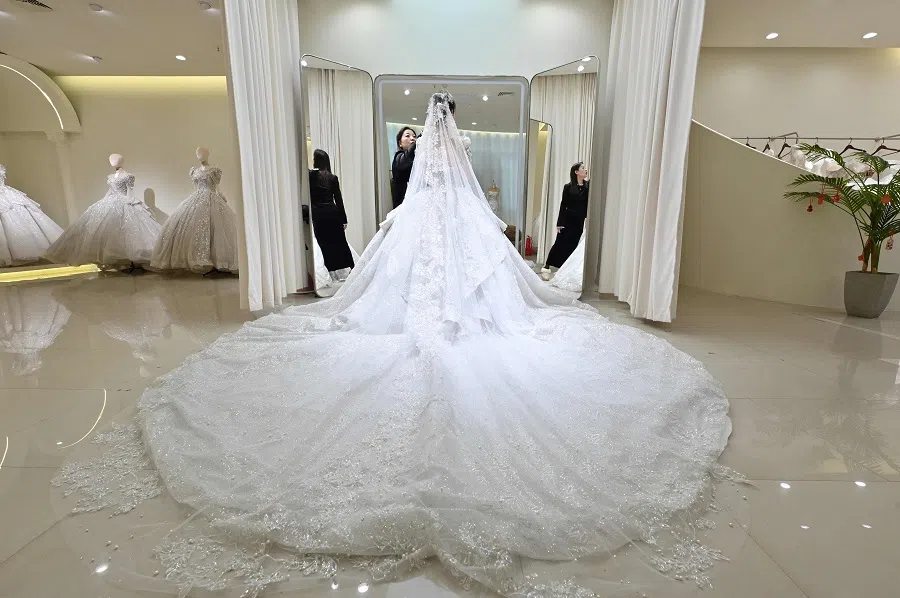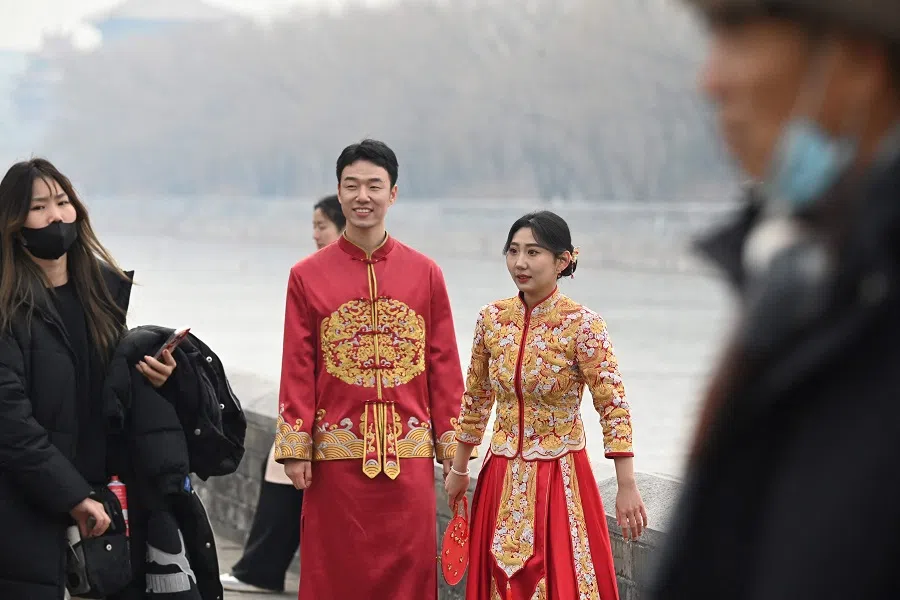Love in the age of filters: My struggle with modern romance
In China, rates of birth and marriage are now at their lowest since the 1980s. Engineer and commentator Qin Pengfei — who is a bachelor himself — offers his thoughts on why fewer young adults in China are getting married today.

The annual Spring Festival has just concluded. Once again, the pressure to marry and arranged matchmaking back home have become hot topics among young people in China. I myself received several well-meaning comments nudging me to “try to bring a girlfriend home next year”. Such concern left me with mixed feelings, including anxiety and a sense of uneasiness. As someone who is experiencing this situation firsthand, I find myself repeatedly pondering why it is so difficult for young people to find a partner.
Because we are so used to looking at people through beauty filters on social media, we have forgotten what real skin looks like.
The internet and social media foster unrealistic expectations
The most significant difference between our generation and that of our elders is the emergence of the internet, which has profoundly changed how we think and socialise. Nowadays, people spend nearly all their leisure time online.
The frequent portrayal of attractive men and women online has significantly shaped young people’s preferences in choosing partners. Women now often use terms like “appearance-focused” and “youthful vibe” when describing ideal partners, while many men may secretly harbour preferences for women with striking legs, black stockings or a “Lolita” aesthetic. Despite these trends, most people remain ordinary individuals within the vast sea of humanity.
Because we are so used to looking at people through beauty filters on social media, we have forgotten what real skin looks like. The close observation of those around us may therefore sometimes lead to a sense of revulsion as well as a profound sense of disappointment. Flaws such as large pores on noses, wrinkles at the corners of the face, frown lines on foreheads and other facial imperfections, for instance, might elicit such reactions.
The internet has significantly broadened people’s horizons, allowing ordinary individuals to witness worldly splendour and unexpected wonders. People have access to information about life beyond their social class. Over time, subjection to such intense mental stimulation emphasises the discrepancy between what is seen online and in real life.
Human desire is boundless; although there is a clear distinction between what one sees on social media and what one can actually have, these images unconsciously influence people’s choices in partners and their social interactions.
Women have higher standards for men than before
While progress has led to greater female self-awareness, online discussions that incite gender opposition and excessively glorify gender identities have left many individuals vulnerable. These “chicken soup for the soul” narratives often hinder people’s ability to critically evaluate or resist the arguments presented. The overconsumption of topics on gender relations and the objectification of these relationships further exacerbate the issue.
In China, almost every matchmaking corner lists the following requirements for men: a height of at least 175 cm, eye-pleasing looks, a stable job, an annual income of over 150,000 RMB (US$20,724), a bachelor’s degree...

Real life seldom matches the glitz, glamour and romance of the online world; it consists of mundane moments and everyday challenges. Sustaining a romantic relationship requires mutual tolerance and understanding. While relationships naturally evolve, they must be grounded in a foundation of responsibility. However, youths today seem to lack the awareness and willingness to take responsibility for themselves, their families, and society.
In China, almost every matchmaking corner lists the following requirements for men: a height of at least 175 cm, eye-pleasing looks, a stable job, an annual income of over 150,000 RMB (US$20,724), a bachelor’s degree, ownership of their own home (preferably without a mortgage), parents with social security, a harmonious family, a good character and a hardworking and down-to-earth nature. Being able to cook is a bonus.
Such conditions are merely the minimum requirements in the marriage market. It seems that as long as women are looking for a partner, they have the right to set these “bare minimum” requirements. The widening wealth gap, deteriorating living conditions and the free flow of information have all undoubtedly distorted people’s mindsets, making marriage increasingly utilitarian.
No room for the ordinary person
Moreover, the fast pace of modern society, coupled with demanding work schedules (like the “996” work culture), has truly sapped all vitality from the youth. Many youths, completely drained after a long day at work, are only able to lie down when they are home. Some also have to work on weekends, which leaves little time and energy for social activities. As such, the remaining time they have is spent lounging idly and on their phones. The pervasive infiltration of the internet has also continuously eroded real-world social skills.
As urbanisation develops, the idyllic pastoral society of the past is disintegrating. Old communities of familiar faces and deep-rooted connections are being replaced by a society of strangers, where a fleeting encounter often means never meeting again. Meanwhile, a trust mechanism compatible with the market economy has not been fully established — even in face-to-face interactions, people find it hard to open their hearts to one another and build genuine connections. Relationships are rife with distrust, caution and vigilance, and the most basal sincerity has become increasingly rare.
“... if my wife had experienced better things today, like someone picking her up in a nicer car and taking her to dine in fancier restaurants, her horizons would have broadened, and she probably wouldn’t have fallen for me. After all, I’m just an ordinary worker.” — a nearly 40-year-old man

Presently, with a declining economy and uncertain job prospects, many people feel lost. Family finances and romantic relationships are in constant motion, just as blood flows continuously throughout the body. In this ever-changing era, some people still view marriage and life with a static perspective, demanding that their partners have stable jobs and emotional consistency; this is as futile as climbing a tree to catch a fish. The fact is that personal growth, emotions and even the world itself are constantly evolving. Marriage and life ultimately require unwavering effort and maintenance from the parties involved.
I once asked a nearly 40-year-old man: “If your wife got to know you today, would both of you still get married?” His response was straightforward and thought-provoking: “if my wife had experienced better things today, like someone picking her up in a nicer car and taking her to dine in fancier restaurants, her horizons would have broadened, and she probably wouldn’t have fallen for me. After all, I’m just an ordinary worker”.
In 2024, 6.106 million couples married in China, which is a decrease of 1.574 million couples — or 20.5% — compared to 2023. There were 6.961 million more marriages in 2014, which is almost twice the number of marriages in 2024 — also the lowest record since 1980. Fewer marriages naturally means declining birth rates. Faced with the dilemmas of declining marriage and birth rates, as well as an ageing population, how can the challenges faced by young people in love and marriage be addressed? In such an environment, can people truly be happy? It is a worrisome thing to ponder.
This article was first published in Lianhe Zaobao as “中国年轻人婚恋出路何在?”.





